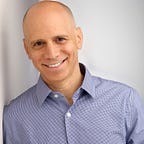The Life-Changing Practice Of Self-Made Billionaires: Self-Skepticism
Six steps to upgrade your thinking
In 2016, Warren Buffet gambled. He invested heavily in four major airlines, surprising many observers after years of shunning the industry. For a while, it looked like his bet would pay off.
Four years later, at Berkshire Hathaway’s recent shareholder meeting, he announced that he had sold all his airline holdings. “We made an understandable mistake,” he told the audience. He was open-minded enough to assess the future of airlines, determine its dim prospects, and admit that he had erred.
Fellow billionaire Ray Dalio shares a similar philosophy. In his book Principles, he writes, “Open-minded people approach everything with a deep-seated fear that they may be wrong.” He points out that our blind spots — gaps in our knowledge and expertise — and ego get in the way of recognizing and admitting to our errors.
Both billionaires demonstrate the virtue of self-skepticism.
The practice of questioning and objectively evaluating evidence that might disprove your beliefs or expose your flawed decisions — self-skepticism
